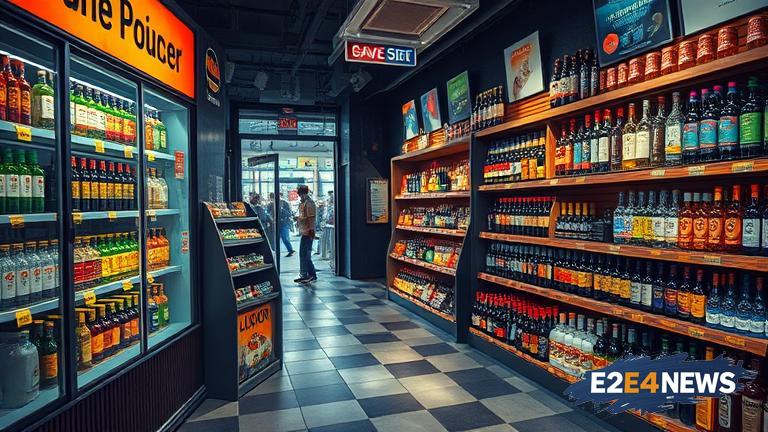In a move that has sparked controversy and debate, vape and liquor stores are increasingly pairing up in Auckland, New Zealand. Despite opposition from local communities and health experts, these combined stores are popping up across the city. The trend has raised concerns about the potential risks of co-locating businesses that sell products with potential health risks. Health experts warn that the pairing of vape and liquor stores could lead to increased access to harmful substances, particularly among young people. The Auckland Council has received numerous complaints about the pairing of these stores, with many residents expressing concerns about the impact on their communities. However, the council’s hands are tied, as there are currently no laws or regulations that prohibit the co-location of vape and liquor stores. The pairing of these stores is seen as a way for businesses to reduce costs and increase foot traffic, but critics argue that this comes at a cost to public health. Vape stores, in particular, have been criticized for their marketing tactics, which often target young people and promote flavored products that can be appealing to minors. Liquor stores, on the other hand, have been linked to a range of social problems, including alcohol-related violence and crime. The combination of these two businesses has the potential to exacerbate these problems, according to health experts. The New Zealand government has introduced regulations aimed at reducing the harm caused by vaping and liquor, but more needs to be done to address the issue of co-location. The Auckland Council is calling for stricter regulations to be put in place to prevent the pairing of vape and liquor stores. In the meantime, community groups are taking matters into their own hands, organizing petitions and protests to raise awareness about the issue. The debate surrounding the pairing of vape and liquor stores is complex and multifaceted, with different stakeholders having different opinions on the matter. While some argue that the pairing of these stores is a legitimate business practice, others see it as a recipe for disaster. As the situation continues to unfold, it remains to be seen what actions will be taken to address the concerns of the community. In the interests of public health, it is essential that policymakers take a closer look at the issue and consider introducing stricter regulations to prevent the co-location of vape and liquor stores. The health and wellbeing of Auckland’s communities depend on it. Furthermore, the pairing of vape and liquor stores has significant implications for the city’s youth, who are often the target market for these businesses. The ease of access to harmful substances can have long-term consequences for young people, including addiction and other health problems. It is therefore crucial that policymakers prioritize the needs of young people and take steps to protect them from the potential harms of vaping and liquor. Ultimately, the decision to pair vape and liquor stores is a commercial one, driven by the desire to increase profits. However, this decision has significant social and health implications that cannot be ignored. As Auckland continues to grapple with the issue, it is essential that the needs of the community are prioritized over the interests of businesses.
